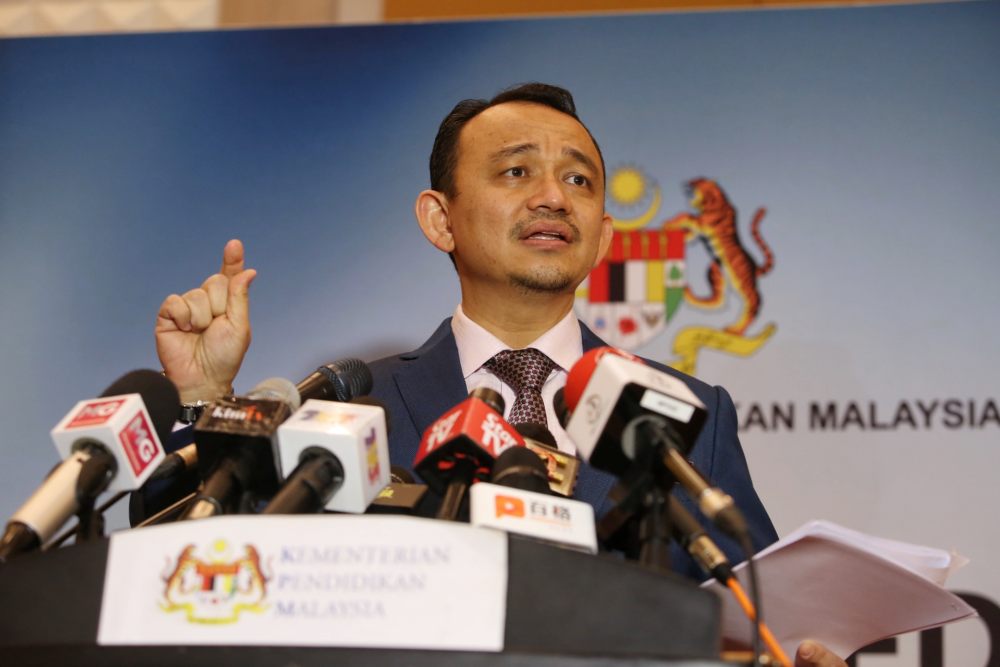PUTRAJAYA, Aug 8 ― Khat lessons for vernacular primary schools will begin next year as planned, Education Minister Maszlee Malik confirmed today.
He said the Cabinet has unanimously approved the introduction of the Arabic calligraphy for Year Four pupils in Mandarin- and Tamil-language schools, and indicated two main changes to lessons following the public storm generated.
“The Cabinet has decided that the introduction of Khat calligraphy will continue as planned but will take into consideration certain matters.
“The Cabinet has decided that there will be three pages in the textbook,” he told a news conference here.
Originally, khat took up six out of 164 pages of the new Bahasa Malaysia (BM) Standard Four textbook, as part of language art activities.
“At the same time, the Cabinet has decided that the teachers have the option on the method of delivery for introducing khat calligraphy in their classes,”
He stressed that there are no examinations on khat.
He also reiterated that khat is not a new, standalone subject, but is part of the BM national syllabus.
He said the decision was made at the weekly Cabinet meeting yesterday, which was chaired by Deputy Prime Minister Datuk Seri Dr Wan Azizah Wan Ismail. Prime Minister Tun Dr Mahathir Mohamad is currently on a working trip to Japan.
Maszlee sidestepped the question when asked if the Cabinet decision meant khat lessons would be optional, saying only that students would not be tested on their calligraphy skills.
The Simpang Renggam MP added that khat for vernacular schools was not his initiative but a continuation of the policy started by the previous Barisan Nasional administration.
Maszlee said that khat had been in the pipeline since 2014 and was set to be introduced in Chinese and Tamil vernacular schools in 2020.
When asked if disciplinary action will be taken against teachers who refuse to teach khat, he said that the goal is not to punish or force anyone.
Instead, he said it is to encourage Malaysian students to have intercultural exchanges while appreciating the history and heritage of the nation.
Regarding the possibility of Sabah and Sarawak rejecting the implementation of khat in their schools, Maszlee pointed out that the Borneo states are still part of Malaysia.
“Sabah and Sarawak are still in Malaysia. According to the Constitution, education is a federal matter and so is its implementation in the SJKC and SJKT,” he said, referring to public vernacular schools.
Maszlee also said that he hopes with the Cabinet decision, the matter will be laid to rest and any confusion or misunderstanding over the issue has been settled.



















